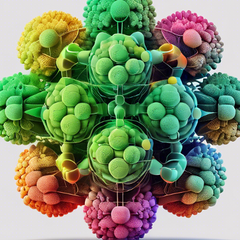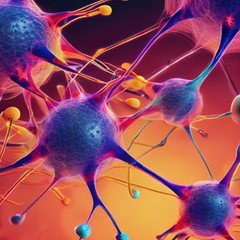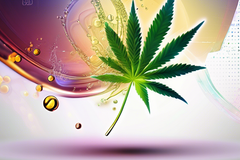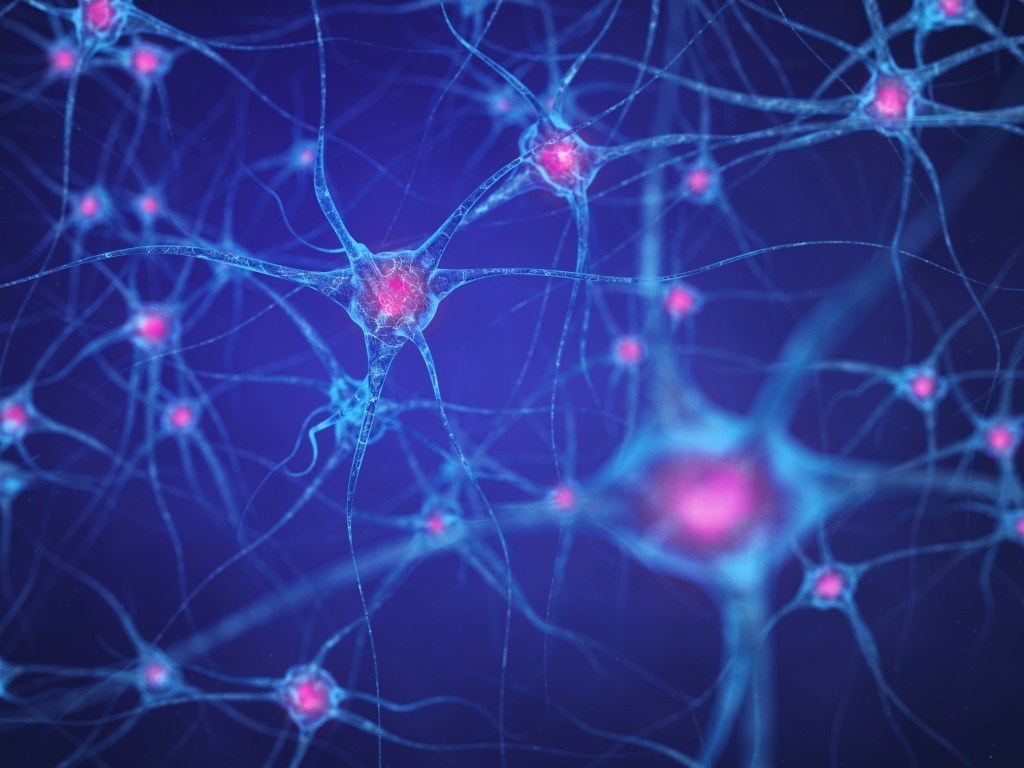Cannabidiol (CBD) and cannabigerol (CBG) both have their own unique medical benefits, and when used together, you can get the best of both worlds as well as an interesting entourage effect. Find out why our CBG/CBD 1:1 ratio products may be more effective for you.
Combining CBD and CBG: Can You Take CBD and CBG Together?
Can you take CBD and CBG together? Combining the two is generally considered safe and we are learning that this may actually be more effective than using each cannabinoid separately. The combination of the two together can potentially harness the unique benefits of both cannabinoids, which may enhance their effectiveness through the entourage effect.
When taking CBD and CBG together, start with a lower dose and gradually adjust based on your individual needs and experiences. While adverse reactions are rare, pay attention to your body's response. If you have pre-existing health conditions or are taking certain medications, talk to a healthcare professional to ensure safety and optimal results.
CBD vs. CBG: What Are the Key Differences?
While both CBD and CBG are non-psychoactive compounds found in cannabis, they have some distinct differences, such as:
Chemical Structure: CBG is known as the "parent" cannabinoid. It is the precursor from which other cannabinoids, including CBD, are synthesized. The difference in CBG's chemical structure influences how it interacts with the body's systems.
Effects on the Body: CBD is renowned for its possible soothing effects and is often used to address issues like anxiety, pain, and inflammation. CBG shows potential in enhancing focus, alleviating discomfort from conditions like inflammatory bowel disease, and showing neuroprotective properties.
Research and Availability: CBD is currently more widely researched and available in the market. This is due to the abundance of CBD in cannabis plants compared to the relatively lower amounts of CBG.
Interactions with Receptors: CBD is primarily believed to interact with the endocannabinoid system indirectly. CBG is believed to directly interact with CB1 and CB2 receptors, potentially offering more direct therapeutic benefits, and making other cannabinoids taken in conjunction with it more effective.
By understanding the differences between CBD and CBG together, users can better tailor their use of cannabinoids to their specific needs and health goals.
How Do CBD and CBG Work Together?
While CBD and CBG may offer significant benefits individually, their combination may also lead to enhanced effects - a phenomenon often described as “synergy.” Here's how these two cannabinoids are believed to work together:
Entourage Effect: When combined, CBD and CBG are thought to produce the entourage effect. This is when their combined action enhances their individual therapeutic properties. In turn, this could potentially lead to more effective relief from symptoms and conditions.
Complementary Mechanisms: CBD and CBG together can complement each other's actions within the body. For example, while we think of CBD as being useful for its possible calming properties and the reduction of inflammation, CBG may actually add to this. How? It may offer more direct interaction with the endocannabinoid system–potentially enhancing overall efficacy when you take them together.
Broadened Therapeutic Scope: The combination can broaden the therapeutic scope, potentially addressing a wider range of symptoms or providing more comprehensive relief. For example, their combined use may offer more pronounced benefits for mental health conditions, pain management, and inflammatory disorders.
By understanding how CBD and CBG work synergistically, users can better appreciate the possible advantages of products formulated with both cannabinoids, potentially achieving more significant health benefits.
CBD and CBG: Understanding the Entourage Effect
When it comes to the combination of CBD and CBG, research suggests that their entourage effects may be particularly beneficial for individuals with schizophrenia. Studies have shown that this combination can help alleviate symptoms such as hallucinations, delusions, and cognitive impairments. By targeting multiple pathways in the brain, CBD and CBG work together to provide a comprehensive approach to managing this complex condition. So, if you're looking for a natural and effective solution, our CBG/CBD 1:1 ratio products could be the answer you've been searching for.

CBG: Exploring the Parent Cannabinoid
We'll discuss each of these cannabinoids separately, and then explain why taking them together is the best way to use them. Cannabigerol (CBG) is the first cannabinoid produced by the cannabis plant and is referred to as the “parent” of CBD and THC.
What is CBG?
Let's delve into CBG, a cannabinoid that inhibits GABA uptake in the brain more effectively than THC or CBD, other known cannabinoids. GABA, which stands for gamma-aminobutyric acid, is the main inhibitory neurotransmitter of the brain. This means that it plays a crucial role in regulating the excitability of neurons and maintaining a balance in brain activity. By inhibiting GABA uptake, CBG can potentially have a more pronounced effect on anxiety, muscle spasms, chronic lower back pain, and sports injuries compared to other cannabinoids like THC and CBD. This makes CBG a promising candidate for the treatment of these conditions.

CBG's Therapeutic Potential: From Neuroprotection to Pain Management
CBG, which stands for cannabigerol, is a crucial cannabinoid that has been found to have various effects on the body. One of its notable actions is its ability to stimulate the alpha-2 receptor in the brain. This stimulation has been observed to have a relaxing effect on both muscles and blood vessels, which suggests that CBG could potentially be used as a treatment for conditions such as high blood pressure and heart ischemia. Additionally, CBG has also been found to have the potential to alleviate the intensity of withdrawal symptoms associated with opioids and alcohol. By binding to the alpha-2 receptors in the prefrontal cortex, CBG has been shown to enhance working memory and executive function. Furthermore, the stimulation of alpha-2 receptors has been linked to the treatment of inflammatory bowel disease and colitis. These findings highlight the multifaceted benefits of CBG and its potential therapeutic applications.
The Diverse Pharmacological Profile of CBG
Additionally, CBG, or cannabigerol, a non-psychoactive cannabinoid found in cannabis plants, exhibits a multifaceted pharmacological profile. It exerts its effects by blocking the 5HT1A receptor, a serotonin receptor involved in various physiological processes, while simultaneously stimulating the TRPV1 and TRPV2 receptors, which are part of the transient receptor potential (TRP) family.
The blockade of the 5HT1A receptor has been demonstrated in a study conducted with mice to enhance learning and memory, suggesting the potential of CBG as a promising therapeutic approach for Alzheimer's disease. This finding highlights the neuroprotective properties of CBG, which may contribute to its ability to counteract cognitive decline.

Moreover, the activation of the TRPV1 receptor, which is also activated by capsaicin, the compound responsible for the spicy sensation in chili peppers, endows CBG with analgesic properties. This makes CBG a viable option for managing pain, offering potential relief to individuals suffering from chronic pain conditions.
Furthermore, the activation of the TRPV2 receptor by CBG has been associated with a range of beneficial effects. It has been shown to regulate glucose levels, which is crucial for effective diabetic management. Additionally, TRPV2 activation has been linked to improved heart cell function, reduced seizure activity, and enhanced immune response against bacterial infections. These diverse effects highlight the potential of CBG in various therapeutic applications.
On the other hand, CBG also blocks the TRPV8 receptor, similar to menthol, a compound known for its cooling and soothing properties. This blockade results in decreased sensitivity to cold and reduced cold-induced inflammation, providing potential relief for individuals experiencing discomfort due to exposure to cold temperatures.
In conclusion, CBG's ability to block the 5HT1A receptor, stimulate the TRPV1 and TRPV2 receptors, and block the TRPV8 receptor, showcases its potential as a versatile therapeutic agent. Its neuroprotective, analgesic, glucose-regulating, cardioprotective, anticonvulsant, and antibacterial properties make CBG an intriguing subject of ongoing research and a potential candidate for the development of novel treatments for various conditions, including Alzheimer's disease, chronic pain, diabetes, and inflammatory disorders.
A few more notes about this cannabinoid, CBG stimulates PPARgamma resulting in a decrease of pulmonary inflammation caused by asthma. CBG also stimulate GPR55, and as a result, there is a reduction in inflammatory pain and neuropathic pain. Furthermore, there is improvement in bone strength and bone mass. And finally, CBG inhibits keratinocyte proliferation when used topically, CBG can successfully treat psoriasis.
Comparing CBG and CBD: Similarities and Unique Benefits
CBG has similar activity to CBD
Just like CBD, another cannabinoid called CBG has the ability to inhibit the uptake of AEA, which in turn leads to an increase in the levels of the 'feel good' or 'bliss' hormone in the body. Similar to CBD, CBG also binds to the CB2 receptor, resulting in various benefits. These benefits include stimulating the immune system to effectively combat infections and aiding the intestine in managing inflammatory bowel diseases such as Crohn's disease and ulcerative colitis. Additionally, CBG has been found to alleviate the symptoms associated with irritable bowel syndrome, making it a promising option for those seeking relief from this condition.
Unlike THC, another well-known cannabinoid, CBG has minimal activity at the CB1 receptor. This means that CBG does not have psychoactive effects and will not induce a "high" feeling. Additionally, CBG does not have the potential to cause paranoia or anxiety, even if consumed in large amounts. These characteristics make CBG similar to CBD in terms of its non-intoxicating properties.
CBD's potential benefits
Now, let's take a moment to delve into the potential benefits of cannabidiol, a crucial cannabinoid that has been the subject of much research and discussion. While the list of benefits is extensive, it is important to note that the following are just a few examples of what cannabidiol may offer: Firstly, it has been found to effectively reduce pain, providing relief for individuals suffering from various conditions. Additionally, studies have shown that cannabidiol can help control symptoms of depression, offering hope to those battling this mental health disorder. Moreover, this cannabinoid has shown promise in decreasing reperfusion ischemic injury, which occurs after a stroke, potentially aiding in the recovery process. Furthermore, cannabidiol has been found to alleviate symptoms of Parkinson's disease, providing much-needed relief for individuals living with this neurodegenerative disorder. In addition to these benefits, research suggests that cannabidiol may also work as an anti-arrhythmic, helping to regulate heart rhythm and prevent irregularities. Furthermore, it has been shown to reduce inflammatory diseases of the skin, such as psoriasis, offering a potential solution for those struggling with this chronic condition. Lastly, cannabidiol has demonstrated its ability to reduce inflammation and pain associated with rheumatoid arthritis, providing a glimmer of hope for individuals living with this debilitating autoimmune disease. It is important to note that while these potential benefits are promising, further research is needed to fully understand the extent of cannabidiol's therapeutic effects.

CBD for Brain Health and Beyond: A Closer Look
Cannabidiol, commonly known as CBD, has been found to have a wide range of potential benefits for the human body. In addition to its well-known effects in relieving pain and reducing inflammation, CBD may also play a role in protecting the brain during a stroke. This is particularly promising news for those who have suffered from or are at risk of stroke, as it suggests that CBD could potentially help minimize the damage caused by this serious medical event.
Furthermore, CBD has shown promise in preventing osteoporosis, a condition characterized by weak and brittle bones. By promoting bone health and density, CBD could potentially help reduce the risk of fractures and improve overall bone strength.
CBD's Role in Managing Pain and Inflammation
When it comes to sports injuries, CBD has been found to be effective in decreasing swelling and pain. This is particularly beneficial for athletes who often experience injuries and need a natural and safe way to manage their symptoms. By reducing inflammation and providing pain relief, CBD can help athletes recover more quickly and get back to their training and competition.
CBD in Addiction and Mental Health
Another noteworthy benefit of CBD is its potential to reduce addiction. Research has shown that CBD may help individuals overcome addiction to substances such as cigarettes, opioids, and alcohol. By targeting the brain's reward system, CBD can help reduce cravings and withdrawal symptoms, making it easier for individuals to quit these harmful habits.
In addition to its effects on addiction, CBD has also been found to act as an antipsychotic. This means that it may have potential in treating conditions such as schizophrenia, which is characterized by hallucinations, delusions, and disordered thinking. By regulating brain activity and neurotransmitter levels, CBD can help alleviate the symptoms of schizophrenia and improve overall mental well-being.
Enhancing Focus and Sleep Quality with CBD
Furthermore, CBD has been found to increase alertness and improve the ability to focus and concentrate. This can be particularly beneficial for individuals who struggle with attention deficit disorders or have difficulty staying focused for extended periods of time. By enhancing cognitive function, CBD can help individuals perform better in their daily tasks and improve overall productivity.
Sleep is another area where CBD has shown promise. Many individuals struggle with sleep disorders or have difficulty achieving a deep and restful sleep. CBD has been found to promote relaxation and improve sleep quality, allowing individuals to wake up feeling refreshed and rejuvenated.
CBD's Therapeutic Effects on Skin and Neurological Disorders
In addition to its effects on the brain and mental health, CBD has also been found to have benefits for the skin. It has been shown to control acne by reducing inflammation and regulating sebum production. This can help individuals achieve clearer and healthier skin, boosting their confidence and overall well-being.
CBD's Promising Role in Mental Health: Schizophrenia and Autism
Lastly, CBD has been found to decrease the symptoms of schizophrenia and autism spectrum disorder. These conditions can have a significant impact on individuals' daily lives, affecting their social interactions, communication, and overall quality of life. By reducing symptoms such as anxiety, aggression, and repetitive behaviors, CBD can help individuals with these conditions lead more fulfilling and independent lives.
Overall, CBD has shown great potential in treating a wide range of conditions and improving overall health and well-being. From protecting the brain during a stroke to reducing addiction and improving sleep, CBD offers a natural and safe alternative for individuals seeking relief from various ailments. It is important to note that further research is still needed to fully understand the mechanisms and potential benefits of CBD, but the current findings are undoubtedly promising.
How Taking CBD and CBG Together Makes You Feel: Understanding Their Effects
CBD CBG benefits and effects may manifest in different ways, such as:
CBD's Calming Influence: Many users report that CBD induces a sense of calm and relaxation. It’s often chosen for its potential to alleviate stress and anxiety, making it a possible contender for those seeking a more peaceful and relaxed state.
CBG's Energizing Effect: CBG is typically associated with more energizing and uplifting feelings. It may enhance focus and mental clarity, which is helpful for daytime activities or tasks that require concentration.
When combined, CBD and CBG may produce a balanced experience. CBD's soothing properties may counterbalance any overstimulation from CBG, while CBG's energizing effects can reduce any drowsiness caused by CBD. This complementary action makes their combination versatile, catering to both relaxation and mental alertness needs.
Understanding Potential Risks and Limitations of Using CBD and CBG Together
While the benefits of CBD and CBG are notable, it's important to approach their use with an informed understanding of potential risks and limitations. Like any supplement or medication, cannabinoids may have side effects, though they are, in general, tolerated well. Some individuals may experience mild side effects such as fatigue, changes in appetite, or gastrointestinal discomfort. It's also believed that the effects of CBD and CBG can vary depending on individual factors like body chemistry, the dosage used, and the method of consumption.
Furthermore, while research into CBD and CBG is promising, it's still ongoing. More studies are required to fully understand their long-term effects and efficacy. Discuss your situation with a health professional if you have pre-existing health conditions or are taking other medications, as cannabinoids can interact with certain pharmaceuticals.
Remember, the goal of using cannabinoids like CBD and CBG is to support health and well-being. Being aware of their potential risks and discussing them with a healthcare provider can help ensure a safe and beneficial experience. As research evolves, we hope to gain a deeper understanding of how these compounds can be best used for health and therapeutic purposes.
Product Types for CBD and CBG: Featuring Kine's Premium Selection
Exploring the world of CBD and CBG is more effective with the right product types. Kine, known for its premium quality, offers a range of options:
Oils and Tinctures: Perfect for quick absorption and precise dosage control, Kine’s oils are crafted for optimal potency.
Sublinguals: For a more convenient and portable experience, Kine’s sublingual lozenges blend the effectiveness of sublingual administration with clean sugar-free formulation.
Topicals: Target specific areas with Kine's topically applied extra-strength Balm, offering localized relief.
Each product type in Kine’s lineup is meticulously designed to meet diverse needs, making them a superior choice in the CBD and CBG market. Explore our collections here.
How to Take CBD and CBG Together: Optimal Use with Kine Products
When it comes to taking CBD and CBG together, the approach should be both strategic and personalized. Kine products are known for quality and effectiveness, and they offer an excellent choice for those looking to explore this combination of CBD and CBG together. Here are some tips on how to get the most benefits using our range of products:
Start with the Right Ratio: We offer specially formulated products with a 1:1 ratio of CBD to CBG, such as these vegan, gluten-free, sugar-free Kine CBG/CBD 1:1 Drops in a variety of flavors. This balanced ratio is a great starting point for experiencing the synergistic effects of these cannabinoids.
Begin with a Lower Dose: If you're new to CBD and CBG, start with a lower dose of Kine products and gradually increase it. This approach lets you gauge how your body responds so you can determine the optimal dose for your needs.
Consistent Use: Use Kine’s CBD and CBG products consistently for best results. Regular use helps maintain a steady level of cannabinoids in your system, potentially enhancing their effects.
Choose Your Preferred Form: Kine provides various forms of CBD and CBG products, including this CBG/CBD Tincture, this CBG/CBD Balm, and these CBG/CBD Drops. Select the form that best suits your lifestyle and preference, or try all three!
Consult With a Professional: Especially if you have certain health concerns or are taking other medication. Consulting with a healthcare professional before starting any new supplement regimen, including Kine products, is advisable.
Embracing the Benefits of Taking CBD and CBG Together
We are learning more and more about CBD CBG benefits! Each cannabinoid is believed to have its own unique properties and benefits and to offer a wide range of potential health and wellness advantages. From CBD's purported calming effects to CBG's purported energizing influence, these cannabinoids may cater to diverse needs in wonderful ways.
Understanding their distinct characteristics and combined effects allows for a more tailored approach to their use, potentially enhancing overall well-being. As research continues to evolve, the possibilities and applications of CBD and CBG in everyday health management are becoming increasingly apparent, potentially making them valuable components in the world of natural supplements.

